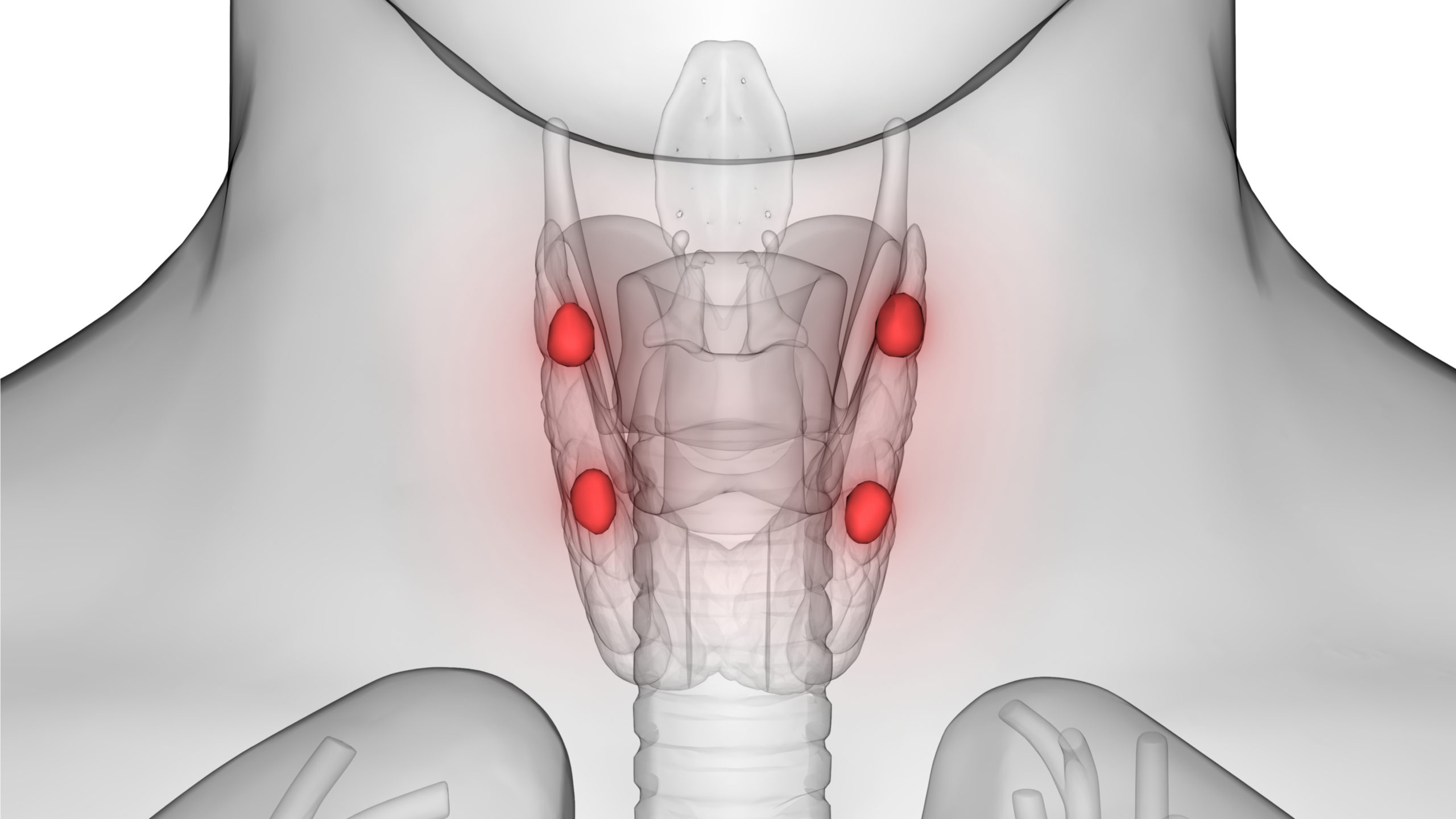
July is Parathyroid Awareness Month. This may be something not many of you are familiar with so we would like to explain what this disease is, who it impacts, possible treatment options and available resources.
Hyperparathyroidism is a hormonal problem that can occur at any age, but occurs most commonly in postmenopausal women. Hyperparathyroidism is where one or more of the four parathyroid glands is overactive and causes an excessive secretion of PTH (parathyroid hormone), which controls calcium metabolism in the body.
What do Parathyroid glands do?
Parathyroid glands are small endocrine glands that are found in the neck. We usually have four parathyroid glands, located in the vicinity of the thyroid gland in variable locations. These glands produce and secrete parathyroid hormone in response to low blood calcium and therefore will usually raise the level of calcium in your bloodstream. The hormones play a key role in regulating the amount of calcium in the blood and within the bones.
Hyperparathyroidism Symptoms and Treatment
Hyperparathyroidism can be asymptomatic, can cause mild symptoms, or in rare cases severe symptoms. The most easily recognized and curable symptoms are osteoporosis and kidney stones.
Common symptoms could include:
- Mood swings, irritability or depression
- Forgetfulness and concentration problems
- Fatigue and decreased sexual desire
- Worsening kidney function, kidney stones and frequently going to the bathroom at night
- Stomach ulcers, GERD (reflux) and pancreatitis
- Abdominal pain and constipation
- Bone and joint pain
- Bone fractures and osteoporosis
- Generalized weakness
Learn more about hyperparathyroidism symptoms
Diagnosing Hyperthyroidism
A diagnosis will be made by measuring the hormone levels in your body. Your physician will order blood tests which, at a minimum, will include:
- Calcium
- PTH (parathyroid hormone)
- Vitamin D 25-OH
- Creatinine
Treatment
The only cure for hyperparathyroidism is surgery which involves removing the abnormal parathyroid gland(s).
Benefits of Parathyroid Surgery
All parathyroid surgeries are minimally invasive and only require a small incision
Successful surgery improves:
- Bone density and decreases the risk of bone fractures
- Quality of life
- Risk of kidney stones (up to 90% of patients do not develop new stones)
- Risk of premature death
- Other non-specific symptoms (sometimes – the symptoms go away IF their cause was parathyroid disease)
Learn more about parathyroid disease and surgery
When Should You See A Surgeon?
See a parathyroid disease specialist if you have high calcium or parathyroid levels in your blood, a history of kidney stones, osteoporosis, or have a new onset of the other symptoms mentioned above.
To schedule an appointment with one of our physicians, please use the following link:
Interested in learning more?
Watch a short video of Dr. Goldfarb explaining Parathyroid and Hyperparathyroidism
Socially Distant Activities to Spread Parathyroid Disease Awareness
Mark your calendar for July 29, 2020! Tune in to the American Association of Endocrine Surgeons (AAES) Facebook page for a Parathyroid Awareness Month webinar from 8-9 pm EST/ 5-6 pm PST. Hear personal stories from those who have been diagnosed and use the hashtag #CheckYourCalcium to help spread awareness.
Additional Resources:
Everything you need to know about parathyroid disease

